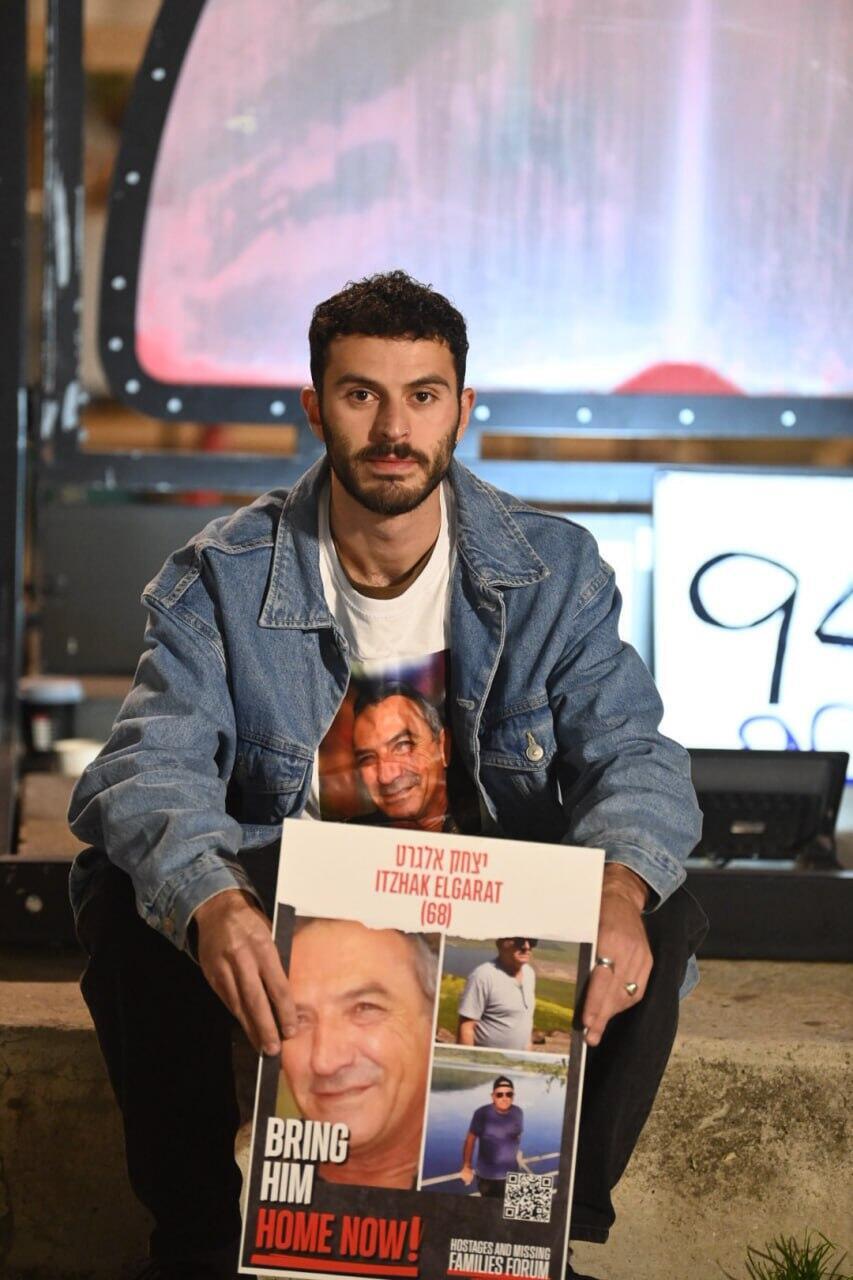Getting your Trinity Audio player ready...
The families of Omer Wenkert, Omer Shem Tov, Eliya Cohen, Tal Shoham, Avera Mengistu, and Hisham al-Sayed have been informed that their loved ones will be released alive on Saturday. These will be the final living hostages released as part of Phase I of the cease-fire and hostage release deal. However, 14 hostages remain to be released in Phase I, and for some no official information has been provided.
The Bibas family stated on Tuesday evening they are aware of Hamas' announcement that Shiri, Kfir and Ariel Bibas will be returned during the exchange of bodies on Thursday. However, they clarified that they have not received an official confirmation on the matter from Israeli authorities. The same applies to the family of hostage Itzhak Elgarat and to Shlomo Mansour, who the IDF recently confirmed was killed on October 7. According to the agreement, four deceased hostages will be returned this Thursday, and four more next week.
Danny Elgarat, Itzhak’s brother, said: “I was contacted this morning and informed that six living hostages will arrive on Saturday, and four bodies will be returned on Thursday. They didn’t tell me anything beyond that, nor did they give me names. It’s not my job to calculate or draw conclusions about whether my brother is alive or not.”
“If they’re publishing the names of six living hostages, it means the rest are not alive — but no one in our family has been officially informed,” Danny added. “The last update I have about Itzik is that there are serious concerns about his life, and until the state tells me otherwise that’s the situation as far as I’m concerned. But how can they not tell us anything? How can they leave us to figure it out on our own? This is a systemic failure — it’s an issue of emotional intelligence. We’ve been turned into objects. We’re no longer human beings.”
The list of 14 hostages remaining in Phase I includes, in addition to Itzik Elgarat, Shlomo Mansour (who the IDF recently reported was killed on October 7), Oded Lifshitz (whose son said, "The chances of him being alive are slim"), as well as Ohad Yahalomi and Tsahi Idan.
Hadasa Lazar, Shlomo Mansour’s sister, told Ynet: “We haven’t been informed about anything. We’re hearing rumors and updates about names being published. I contacted our officer, and she said they don’t know anything either — it might even happen on Thursday. Families of the living have already received their notifications, and Saturday feels so far away. But with the deceased, with the dead, we hear nothing. We’re stretched like a spring. They say four bodies are supposed to be returned, so I start planning —burial, shiva. It’s all so heartbreaking.”
Get the Ynetnews app on your smartphone: Google Play: https://bit.ly/4eJ37pE | Apple App Store: https://bit.ly/3ZL7iNv
“I want to remind the government that time has run out. It ran out a long time ago. They don’t have even a few more minutes to wait there,” she added. “The prime minister should make a brave decision and bring them out. As long as the hostages are still there, I don’t see any victory. The prime minister said we’re on the brink of victory? Then I want to see them here. Then we can start rebuilding.”
As part of the preparations for receiving the last six living hostages in Phase I of the deal, Israel is also preparing for another process: the identification and burial of those who will not return alive. According to the plan, Hamas will transfer the bodies to the Red Cross, which will hand them over to IDF.
Bodies transferred to Israel will be taken to the Institute of Forensic Medicine in Abu Kabir, where they will be identified using advanced methods, including DNA sampling and dental imaging. Only after the identification process and definitive confirmation of the victims’ identities will military casualties be transferred to military rabbinate, and civilian casualties will be transferred to the Ministry of Religious Services.
Once the dead have been identified, the "bitter notification" team will be activated. This team, consisting of welfare professionals, police officers and IDF representatives, in collaboration with the Ministry of Religious Services and local authorities, will officially inform the families of the victims that their loved ones have been identified. Burial locations and funeral dates will then be arranged with the families according to their wishes.




